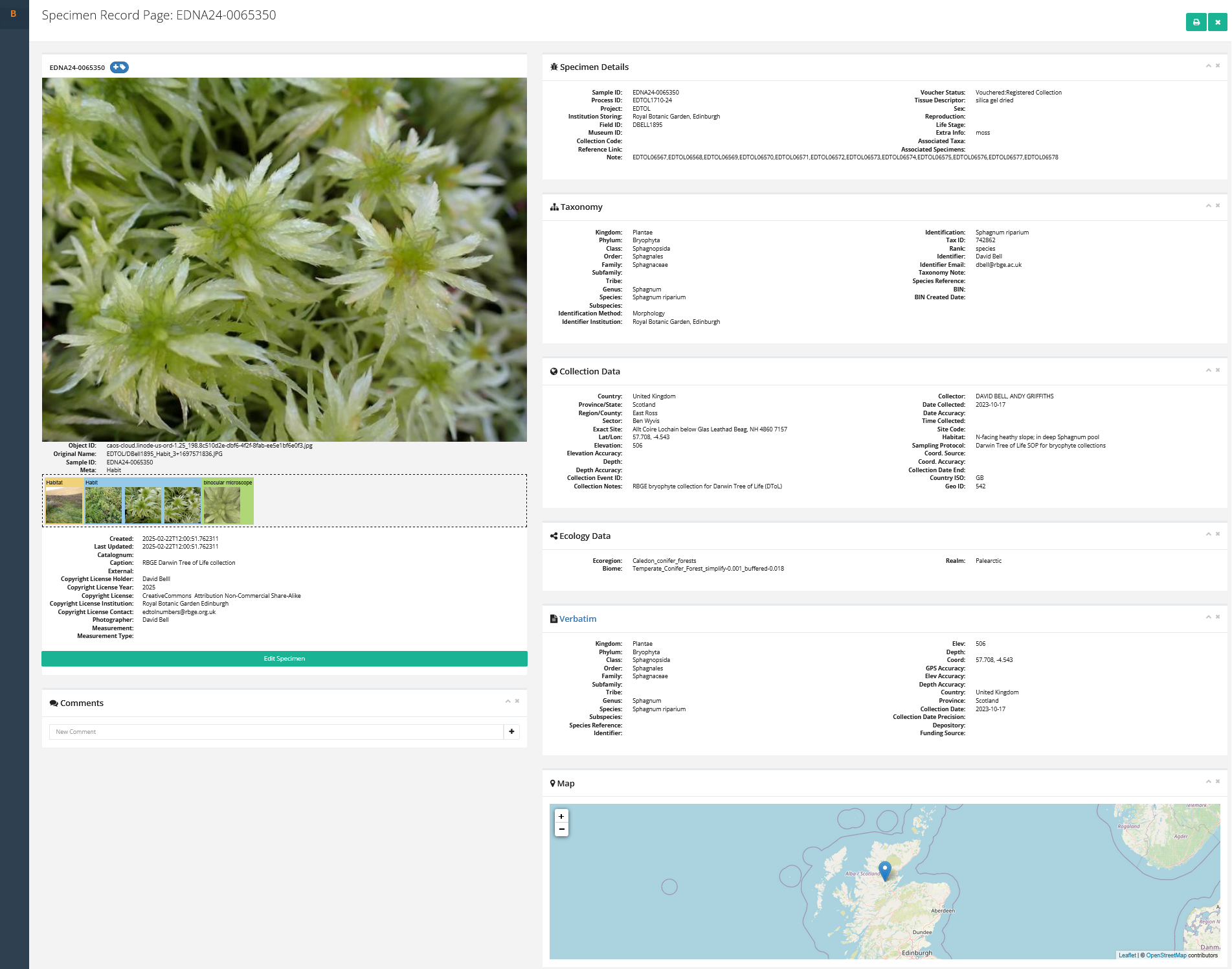The Darwin Tree of Life (DToL) is an ambitious project which aims to sequence the entire genomes of all complex life in Britain and Ireland: 70,000 named species of plants, animals, fungi and protists.
The project is led by the Wellcome Sanger Institute in collaboration with a consortium of biodiversity, genomics and analysis partner institutes, with a goal of producing a resource that can transform the way we do biology, conservation and biotechnology.
The Royal Botanic Garden Edinburgh (RBGE) is involved in the project as a genome acquisition lab for plants, including the roughly 1,100 species of bryophytes and 1,600 species of vascular plants native to Britain and Ireland, as well as with lichens. Our work involves curating taxon lists for vascular plants and bryophytes, developing sampling priorities, collecting and identifying plant samples, undertaking plant DNA barcoding, R&D on HMW DNA extraction protocols for plants, and linking the resulting genomic outputs to projects focusing on taxonomy, ecology, evolution and conservation.
The key to successful sampling for these reference genomes is preservation, with tissue flash-frozen in liquid nitrogen in order to preserve the high-quality DNA required for the long-read DNA sequencing technologies used. RBGE has developed a series of collection standard operating procedures for vascular plants,and bryophytes providing detailed instruction for field sampling a diverse array of plant species.
These samples are then stored in -80 freezers until they are shipped on dry ice to the Sanger Institute for genome sequencing. As well as the flash-frozen sample for genome sequencing, we need three associated samples:
- herbarium voucher specimens, as a physical record of the sample;
- silica-gel dried samples for DNA barcoding at RBGE, to verify the species ID and track the sequence through the genome sequencing pipeline;
- fresh tissue for flow cytometry at Royal Botanic Gardens Kew, to estimate genome size and help predict any sequencing or bioinformatics issues with polyploids.
The Darwin Tree of Life Project was supported by Wellcome through core funding to the Wellcome Sanger Institute (220540) and the Darwin Tree of Life Discretionary Award (218328)






